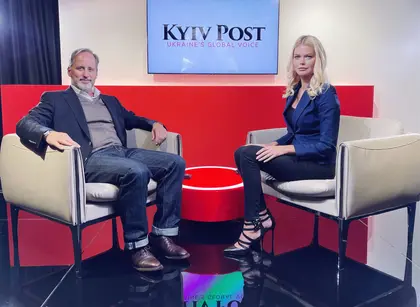In August, according to the Russian Ministry of economy, Russia’s revenue in 2022 rose to $337.5 bn, up 38 percent from 2021, due to rising energy prices.
Brian Best, head of Investment Banking of Dragon Capital, said although the Russian budget is earning more today than before the war, that prices for commodities have gone up considerably and Russia is selling less. However, that doesn’t mean that sanctions aren’t working.
JOIN US ON TELEGRAM
Follow our coverage of the war on the @Kyivpost_official.
“In the long-term perspective, the sanctions are working quite well. No one can expect a country like Germany to immediately switch its gas from Russia’s supply to other countries overnight. It just can’t happen. They can do it by the end of 2023 or 2024 – it’s an excellent fit for such a country as Germany,” Best explained.
“I think the sanctions will work,” he continued. “It just needs some time. Sanctions are working in technology transfer. Russia, which has natural resources like oil and gas, can earn as much money as possible by selling gas. However, it can’t spend this money on modern technology to replenish weaponry and its army. Then sanctions work in the technology field and will work in the economic field.”
According to Best, any price cap on the purchase of Russian oil and gas will positively impact Ukraine and its allies because it limits the amount of money Russia can make by selling its commodities. Pure logic and mathematics would show that a price cap certainly helps.

EU Transfers €1.5 Bln Raised From Russian Assets for Ukraine
Sanctions against the Russian Federation began almost immediately after the start of the offensive against Ukraine. The EU made the first decision on February 25: The restrictions concerned Vladimir Putin personally and several high-ranking officials of the Russian Federation.
Then the US joined these sanctions, prohibiting all operations with the Ministry of Finance of the Russian Federation, the Bank of Russia, and the National Welfare Fund. The restrictions were imposed against a number of Russian oligarchs and Putin supporters. They also applied sectoral sanctions to various sectors of the economy.
By the beginning of September, seven packages of sanctions had been introduced against the Russian Federation, the scale of which exceeded the restrictions that have been in place against Iran for several decades. Trade, transportation, and financial services are limited in Russia. The eighth package of sanctions is currently being prepared.
You can also highlight the text and press Ctrl + Enter






